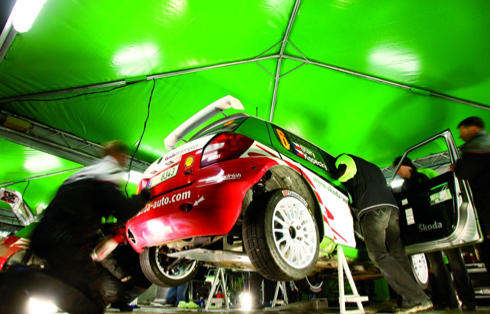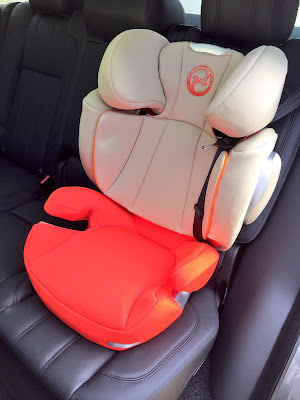BLOG: Go Rallying in 2014! Road Magazine Get Started Guide…
2014 is all set to be a great year for British rallying – with both young gun Elfyn Evans and McRae -protégé Kris Meeke entering the WRC fray in what will hopefully become a new boom era of top-level UK rally star action in world rallying, like the good old Burns Vs McRae days of the 1990's (but now it's Welshman Vs Irishman rather than Scotsman Vs Englishman!)
We're confident the combination of the charging WRC Brits getting the glorious sport of rallying a higher profile here in blighty and WRC being on a resurgent run of late (after an outstanding Wales Rally GB and new blood in VW and now Hyundai) will lead to a rise in numbers of folk wanting to try their hand at rallying.
But where to start?
Sadly, rallying is not as straight forward as getting into hill climbing, sprinting, auto testing or even circuit racing… which unfortunately can put folk off. But, if it's your goal to have a go on the gravel, or tear up the tarmac… stick with it, as the rewards are extraordinary, and it's not that complicated.
To help you budding McRae's and Meekes, we've complied a brief outline of the steps you need to take to get started in the best motorsport on the planet:
1. Assuming you are over 17 and have a full driver's licence, contact the sport's regulatory body, the Motorsport Sport Association, MSA, for your 'Go Rallying' starter pack, which is £64 (with the VAT). This bumper pack includes your vital 'blue book' MSA Yearbook (now also in e-guide interactive disc format) which is loaded with rallying regulations and rules you will need to be all over, your application form for a National B rally licence, a 'Go Rally' 1st Aid in motorsport DVD and notes to help you fill out your forms correctly. Get studying, get your form filled in and get ready to post your form/fee off: £55 for a National B Rally Licence in 2014. That's the boring bit almost done!
2. Now you need to pass a BARS (British Association of Rally Schools) test, at one of the 10 accredited centres in the UK, which are: Bill Gwynne at Brackley, Chris Birkbeck in North Yorkshire, Forest Experience in Powys, Knockhill in Fife, Club MSV at Brands Hatch or Oulton Park, Phil Price in Powys, Silverstone Motorsport Academy at Towcester, Silverstone Rally School itself or Superdrive in Northern Ireland.
The BARS test will include a welcome introduction, MSA video, briefing on what to expect at your first rally, safety issues and the BARS test details, then a written test (based on the video contents and MSA Blue Book contents, focused mainly on safety). Finally, you get to go rallying – for 20-minutes, with an instructor, who will evaluate your skills and see if you are fit to go stage rallying.
The cost for these BARS tests varies, but budget c£180-200.
Like all tests, you can fail this (which means a costly re-sit) and the BARS does NOT include tuition. As such, it's not only worth swatting up on your MSA blue book, but getting some time in a rally car prior to the test, to make sure you pass with flying colours.
With your BARS passed, you can post off your licence application and fee to MSA and get ready to receive the licence in the post soon… and you're good to go, almost!
3. Find and join your local car club: You will get a lot of support, meet a load of like-minded people and get a lifetime of camaraderie from your local motor club. They are also likely to host motorsport events which you will want to enter, or help you find them.
Find a list of UK car clubs here.
4. Decide what type of rallying you wish to do:
(A). Road Rallies, which take place on the public highways and are the only form of rallying you do not need a licence for, just car club membership. They come in various forms – historic, economy, endurance and the more hardcore night rallies.
The aim is to navigate (using OS maps, not pace notes) around a pre-set route, to a pre-set time (usually averaging 30mph) and pass through all the control points, exactly to schedule; arrive early or late and get time penalities. It might sounds dull, but they are fabulous events and road rallying is a great, affordable, safe way to get started in the navigational element of rallying, while improving your driving skills and having a great time. We love them.
Plus, you do not need a specialist car either, just a road legal motor, a good OS map, light, magnifying glass and we'd recommend a sump guard. Be warned though: Some night road rallies are full-on affairs (especially in hardcore Wales & Scotland rally country) and you might think you've accidentally entered the Wales Rally GB! Averaging 30mph on the routes they pick means going flat out!
Or
(B). Stage Rallies: Take place mostly in the UK's stunning forests on gravel, or around competitive loops on closed tarmac/mud/gravel roads at airfields and across farmland/woodland etc.
This is the real deal, and is all about setting the fastest aggregate time A-B, through the timed special stages, just like they do in the WRC.
What some folk don't realise is that you also drive between the timed special stages on the public road, to highway regulations (hence why rally cars need an MOT and road tax).
5. Do your maths, set a budget and then buy a car appropriate for the rallying you intend to do and all the gear that goes with it.
For road rallying, that's not a lot – just road legal.
But for stage rallying, as well as being road legal, your car will also need to pass 'scrutineering' to comply with strict MSA regulations for motorsport safety. As such, you car will need to be heavily modified and fitted with a compliant full roll cage, up-to-date racing seats and harnesses, electrical kill switches, fire and other safety equipment etc. You will also need race suits, helmets, gloves, boots and all the clobber for you and the navigator (like poti lights, timing gear, pace notebooks etc.).
Initially, the gear you need to go stage rallying is a lot to get your head around – not to mention expensive – but your car club mates and the MSA themselves will help you get complaint, and recommend where to get your gear/people to help you sort your car out.
You do NOT want to enter an event, pay the fees and then not be able to rally because your harnesses are out of date (or worse). Get organised and make your rallying journey stress-free we say.
6. Find a capable co-driver and some event support.
Key co-driver traits are: Someone you are prepared to spend long hours with at odd hours when you are knackered and not fall out with, someone who is organised/good at keeping time, someone who is not travel sick easily and most of all - someone you like and who loves rallying!
NB: They need to be over 16 years old and have a navigators' licence, available via the MSA (but there's on need for them to take the BARS test).
You also need to consider the level of event support you will require – getting the car to and from the events, sorting out mechanical issues, changing tyres, re-fuelling (the car and you) etc. This all depends on your budget and ambition. But you will find that your petrolhead mates will be only too happy to muck in, to be part of the rallying buzz, which helps keep costs down. Or, if you are handy with spanners and hammers and pack lots of Red Bull, you and your navigator can do it all yourself… just invest in a pop-up gazebo for the service area!
7. Testing/shakedown: To get the most out of your rallying adventure, our advise is to take your new rally car on a few tests/shakedowns first. This can be a cheap track day to check for running issues at full speed and get to grips with your car's handling and set it up to suit you/the event OR if you can afford it, on a bespoke test on the choice of surface your events are running on, like the pros do. Either way is highly recommended and will pay you back in droves and massively reduce the risk of retirement in an event you've paid up for/been anticipating – either from mechanical drama, or worse… an accident, which is never great! Time spend setting-up is time well spent in rallying.
8. Enter your first event and have fun!
Whether you have a massive budget (and you WILL need one to enter the British Rally Championship say) and are aiming high in the sport, doing a whole championship of events, or you are just having a go at stage rallying locally, as affordable as possible, one event at a time, remember to focus when you are live on stage, soak up the memories and have fun. Each event will fly by. And build up the pace slowly! You have to be at the finish to get ranked, and many aren't! Remember, even Colin McRae rolled his car – a LOT – on his way to being WRC champion, and it's a dangerous, painful and expensive business, best avoided.

We hope you've found our Road Magazine 'Go Rallying in 2014' blog post useful?
Do please share it with your rallyist mates if you did.
And, for more information on getting started in rallying call the MSA for more details on 01753 765 000 and visit their website.









Great write up and feature.......I hope you're taking notice of point number 5!
ReplyDelete